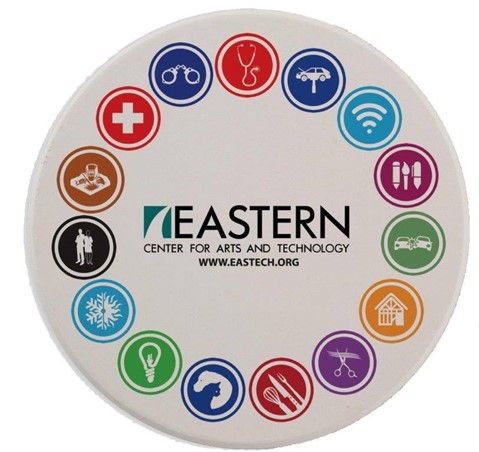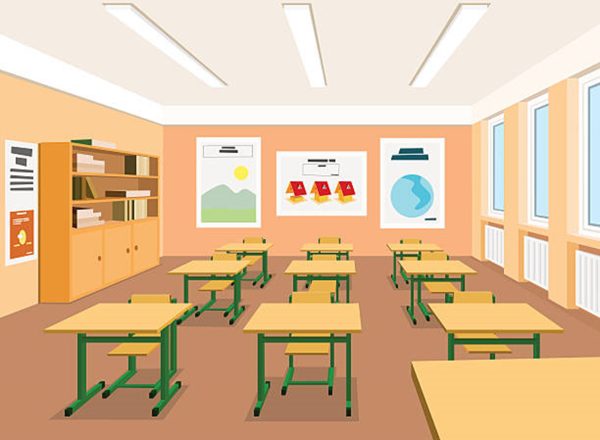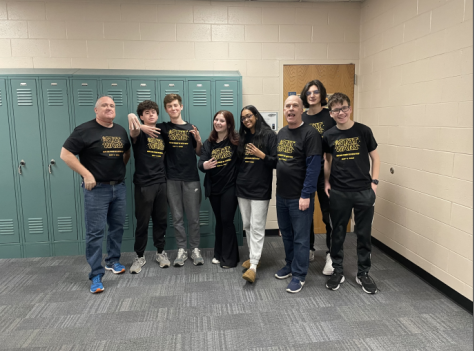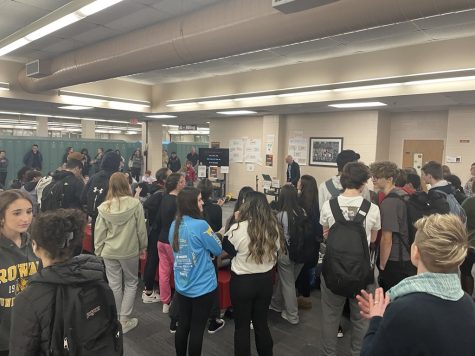Should Keystones and Finals Have Their Final Moments?
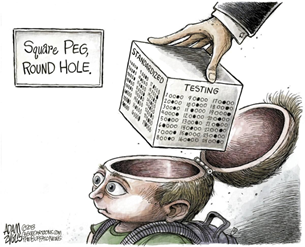
Photo: Adam Zyglis.
It’s the new semester now and we’re now winding down from all the finals and Keystones, but there are some questions that need to be answered.
What do students think–Are Keystones pointless? How good of a job did our teachers prepare our students?
I went out and decided to interview some students; some in different grades than me, men and women, and even one student who goes to our Eastern program.
I wanted to find out what our students did to prepare for finals, so I first decided to interview sophomore Nolan Walker.
He said, “I had biology finals for this semester and I was not ready for them. Some of my classes didn’t give me time to study in class.”
I feel students should have time to study in class, especially with some kids not having the time to study at home with sports involvement.
Nolan also did have an interesting opinion on whether standardized testing is necessary.
“I think students should continue with standardized testing since it makes sure the students are keeping up their academic progress and it makes sure they’re not going mindlessly to class, not learning anything.”
I feel like Nolan makes a good point here; too many students go to class on autopilot and don’t learn anything, but this is contrary to popular opinion, which you will see soon.
The next person I interviewed was sophomore Keerthi Mokkarala, who had a final for all of her classes. When I asked her which classes, she said, “AP World, AP Environmental Science, Algebra II and Spanish II.”
I then asked her if she felt ready, and she said, “I’m not ready but I’m sure other people are. I think my teachers did an alright job preparing me for these.”
A lot of the people I’ve asked said it wasn’t their teacher’s fault. Students already have to worry enough about finals.
Keerthi had no Keystones this semester, but her opinion on standardized testing was, “I don’t think standardized testing is necessary. I know it’s for the state evaluation, but even then, I don’t think it shows a person’s intelligence.”
I agree with Keerthi; some people may just be wired differently that makes them unable to concentrate or understand the words on the page. There are other ways to measure intelligence.
Freshmen I feel have the most important opinions on this matter since they’re new, so that is why I interviewed freshmen Freddy Simko.
He started off by saying, “I have French, English and Math finals and I feel I’m kinda ready. I’m a little nervous I admit but I feel like the teachers did a good job of preparing me.”
This is Freddy’s first year in high school, so it’s important to know how he and all freshmen handle this period.
It’s good that his teachers prepared him, and I feel staff could get better feedback on finals if they just asked the freshmen about them, not to mention that some freshmen might not be prepared.
I then asked him about Keystones and standardized testing in general, and he said, “I have no Keystones this year, but in this day and age kids don’t really need it as much as they needed it back in the day.
Now we have new job opportunities you don’t need to test for, so I just think it puts more stress on the kids rather than helps them.”
Of course this is similar to Keerthi’s opinion: many kids feel as though they don’t need standardized testing because it doesn’t accurately measure what they’re supposed to.
Someone who probably agreed most with Freddy’s opinion was senior Michael Marcus. He agreed to do an interview with me to talk about the differences between traditional classrooms and Eastern.
“Eastern is ongoing, no semesters, and there is theory work everyday.”
Theory work, from what he told me, is exactly what you think it is: seeing if something would work before actually doing it. Something like “Would this beam of steel, according to the surroundings, go here or here?”
Standardized testing is also different at Eastern as well. I asked Michael what was different about it and he said,
“There is testing, but it isn’t like regular school. The seniors take the NOCTI, which is a hands-on skills and knowledge test, in everything we’ve done in the past two years. This is, of course, only for tech school, and it’s kind of like the SAT for us.”
NOCTIs seem to do what they’re supposed to: accurately test students based on what they learned. Compare this to the Keystones and SATs, where almost every student agrees we don’t need them.
I then went on to ask Michael what his opinion was on standardized tests in a traditional classroom and he said, “Students do not need testing because it doesn’t test students’ learning like they’re supposed to. It just tests how well you can take a test and it just stresses the kids out.”
Michael also wanted to add that, “Eastern has been the best opportunity I’ve had so people should consider it.”
Do keep in mind that Michael is somewhat of a spokesperson for Eastern so he is slightly biased, but I don’t think he’s wrong.
Kids who think that they aren’t going to need four years of complex Math, English and Science don’t have to be forced to take it to get a job that doesn’t use it. I think if you want to work with your hands in a trade, Eastern might be something to consider.
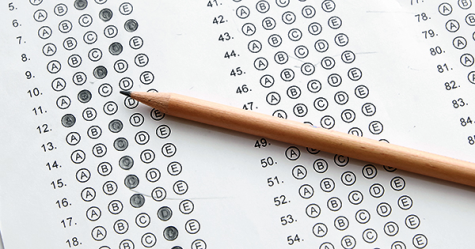
I interviewed two teachers about this subject to get their opinion as well: Ms. Dana Saucony, a sophomore grade health teacher, and Mr. John Kurek, a sophomore trigonometry teacher.
I interviewed Ms. Saucony first, and asked the following questions, starting with: “Have you ever given your students finals before? Do you think you prepared them enough and would they agree?”
She said, “Yes, I’ve given my students finals before and I feel I prepared them enough. They wouldn’t agree with me though.”
This statement comes back to Nolan’s argument; even though teachers feel that they themselves prepared their students enough for finals, students sometimes don’t agree. Communication is best in this instance since students can ask for optimal ways of studying for tests.
I also asked about her opinion on Keystones and the SAT/ACT, and she said,
“I think it could be done better. There should be other ways students should be tested. I can’t think of a better solution but I’m sure we can figure out another way.”
I found Mr. Kurek’s responses interesting especially. He said, “I usually give the kids finals to make sure they have a good understanding of what they learned so they’re ready for their next math class.”
I also asked him if he thinks he prepared the students enough as well as if the students thought the same, and he said, “I think we prepared my students enough; we’ve set aside multiple days so they review the important topics. I also think it is half and half when it comes to the student’s opinion. They need to have something coming from them that motivates them.”
This is different from most other responses and I feel is an opinion only a teacher could have. Unmotivated kids who blame their lack of preparation on teachers should be looked at. There should be more motivation coming from the kid’s end. What if that is the majority of students?
I then asked him about standardized testing, and he said, “My view has really changed recently. I used to think that it was necessary to give everyone the exact same test so they have an even playing field, but at the same time, maybe kids learn differently at different times so it isn’t fair for every kid. What kind of alternative could you have to it though, another test? I have to think of some type of alternative.”
That was the commonly agreed upon response.
Mr. Kurek added, “What if students had another day to come back and see how they did on the final and the teacher can talk it over with them? Most kids think once they’re done with the final they’re done, and then they don’t learn anything. If they come back though, they can see where they went wrong and actually take something from the class.”
Mr. Kurek told me that that worked very well.
And finally, to get a school wide sense on the issue, I conducted an anonymous schoolwide poll with the same questions I asked in interviews.
Out of sixty respondents, 60/40 split between sophomores and freshmen, most had the same opinions.
Most thought teachers kind of prepared them for finals but not enough, standardized testing was completely unnecessary and many had unique ideas on solving the issues.
“Instead of finals, there should be a mandatory amount of points you need to pass a class. Each unit test can accumulate at the end of the semester to create what would be your final grade instead of taking a final. You would still be able to have the opportunity for second chance learning and making up the test if you were out.”
“Maybe a standardized portfolio type project. It would still show the state that we are learning and would pull together everything we learned. We could pull on information we used in other projects and roll everything we have into one big project.”
“If teachers want to test students to see if they are paying attention, then do an open note test on what they wrote down. It will still require them to look over notes but at least they are not left with nothing to rely on. Then if someone is not feeling too great on that day and their brain is not at full function, at least they have a shot to figure it out with the help of notes. Or you can do a group test where the kids are in groups, and they work together to put their brains together to answer the questions, or they all attempt to answer the question on their own, and then share their answer and figure out the correct answer.”
Some students wrote very long, well thought out passages that are not included in this article but be assured, I read them, so don’t feel like it was for nothing. I enjoyed reading every one of them.
So in conclusion, most kids don’t want standardized tests: not because they’re not ready for them, but because they don’t think they do what they’re supposed to.It’s good to see, though, that kids are ready to take their finals for the most part, but I do think teachers should reconsider their methods of getting their information across. Students should express their concerns and be listened to.

Favorite school subject: AP Gov
Hobby: Guitar, gym
What you enjoy/look forward to with The Hat Chat: I look forward to editing articles and helping...

